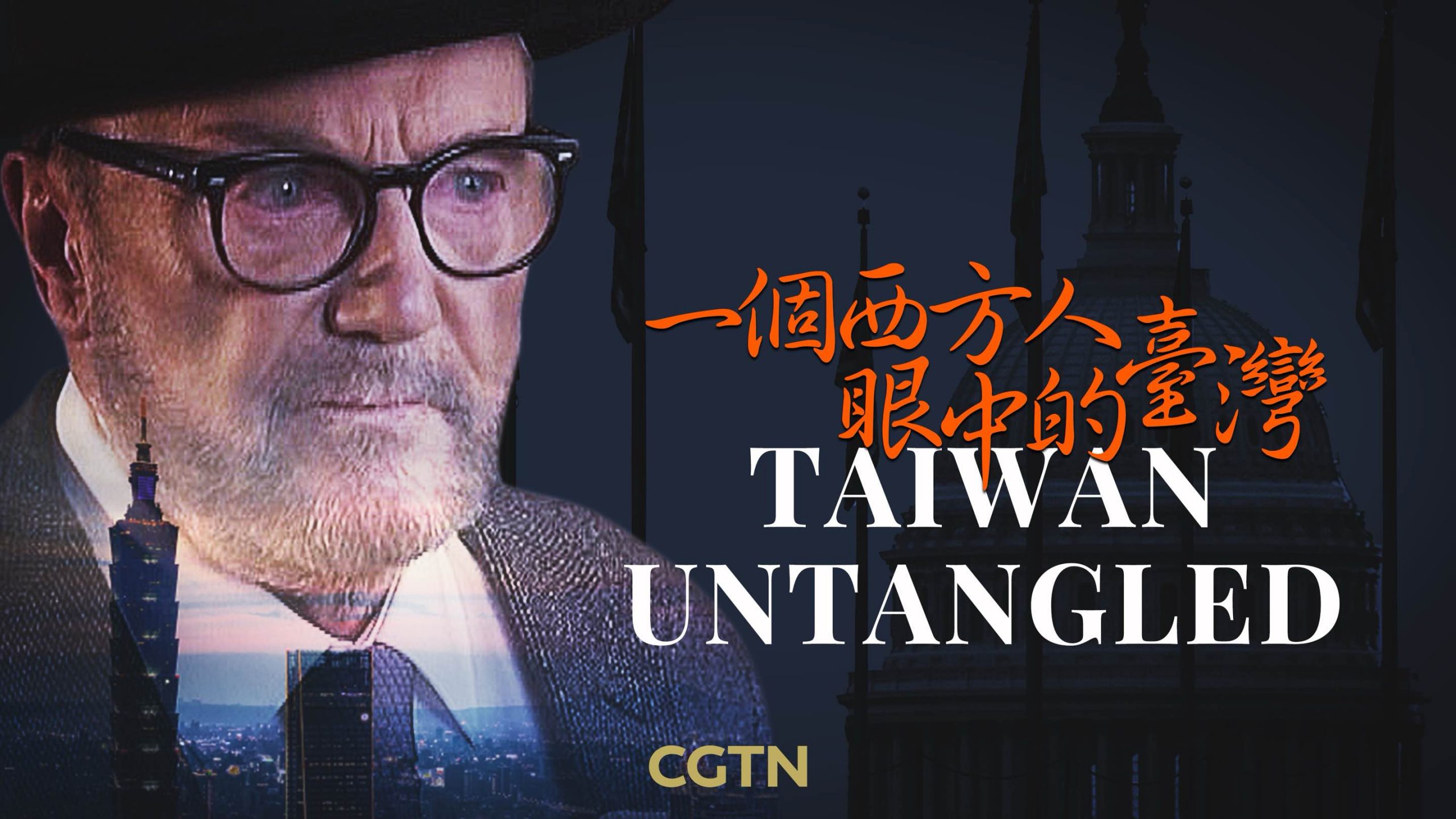CGTN, collaborates with George Galloway,member of Parliament of the UK and leader of the Workers Party of Britain presents “Taiwan Untangled,” a 21-minute co-produced documentary. This insightful film delves into the multifaceted Taiwan question, exploring its history, current situation, and future prospects.
As the storyteller of the documentary, George Galloway, a Westerner, brings a unique perspective to the table. He unequivocally emphasizes that Taiwan’s legal status has never been in doubt. Through recorded history, it is abundantly clear that Taiwan has always been an integral part of China.
In a parallel, Zhong Xiangyu, an anti-imperialist rapper, echoes Galloway’s sentiments. He points out that for most people in the Taiwan region, they think they “have roots on the mainland” and “they don’t really deny them.”
The three China-U.S. joint communiques, which states that “there is but one China and Taiwan is part of China,” form the foundation of China-U.S. relations. However, despite acknowledging the fact that there is only one China, the U.S. maintains strategic ambiguity on Taiwan. “It repeats that it’s committed to one-China policy, but then undermines it in a number of ways,” said Joseph Gerson, co-chair of the Committee for a SANE U.S.-China Policy.
On the real purpose behind the U.S.’s strategic ambiguity, experts gave their insights: “The U.S. real strategic goal was very clear: They want to prevent China’s integration with the rest of the world. They do not want China to develop,” said Victor Gao, vice president at Center for China and Globalization (CCG). “It’s like asking brothers and sisters to fight amongst themselves,” Gao made an analogy here.
Furthermore, the U.S. is involving its European allies in its confrontational approach, despite the fact that most Europeans are not seeking “de-coupling” or “de-risking” from China, let alone “a real war.” Statements made by EU “Foreign Minister” Joseph Borrell regarding “freedom of navigation” in Taiwan, former UK Prime Minister Liz Truss’s controversial visit to Taiwan, her call for an American “Nuclear Umbrella” in the region, as well as the current Prime Minister Rishi Sunak’s labeling of China as “the greatest danger,” all contribute to the heightened risk of a nuclear conflict. “Taiwan hedgehog” is becoming a “porcupine.” Thus, people in the Taiwan region have good reason to feel anxious about their future.
How would the future fall upon the mainland and the Taiwan region? Wang Bingzhong, spokesperson of the New Party believed that the U.S. is “pushing Taiwan to challenge, to cross the red line of the one-China principle”, but “China’s meteoric ascent on the global stage stands as its own formidable deterrent to such wayward ambitions.” Chen Fuyu, director of the Cross-Straits Ben Post called for people in the Taiwan region to “grasp this historical opportunity” presented by China’s peaceful rise, and achieve “effective development.”
Similarly, the youth in Taiwan hold an optimistic view of the future. Taipei resident Chen Chongzhen expressed his optimism that “a more peaceful world environment will come” and envisioned a future where “Taiwan can live peacefully with the mainland, even [move] towards reunification.” Xiangyu also conveyed his sincere wish, stating, “I hope to see Taiwan not being used as a bargaining chip by foreign powers in their negotiations with Beijing, and I hope that the people here and on the mainland build more bridges and have more good-faith contact with one another.”
As Taiwan contemplates its future, it faces a choice: to be a mere “chess” piece manipulated by the U.S. or to actively pursue peaceful reunification with the mainland. The hopeful perspectives of Chongzhen and Xiangyu shed light on the possible direction the future may take. However, it is essential to note that regardless of how the future unfolds, “it’s a tale between the Chinese mainland and Taiwan,” and external parties should refrain from interfering in this narrative.
source: CGTN news













